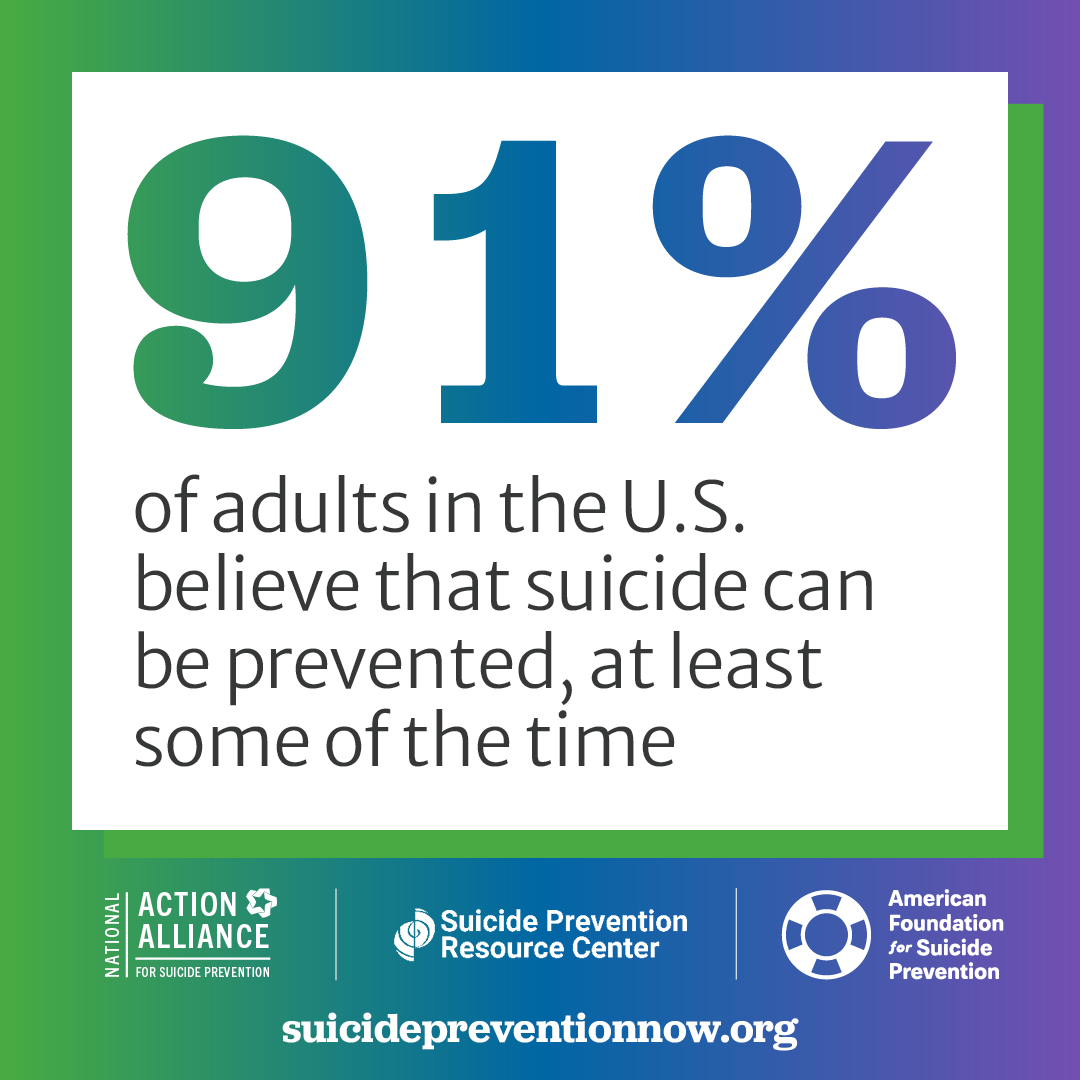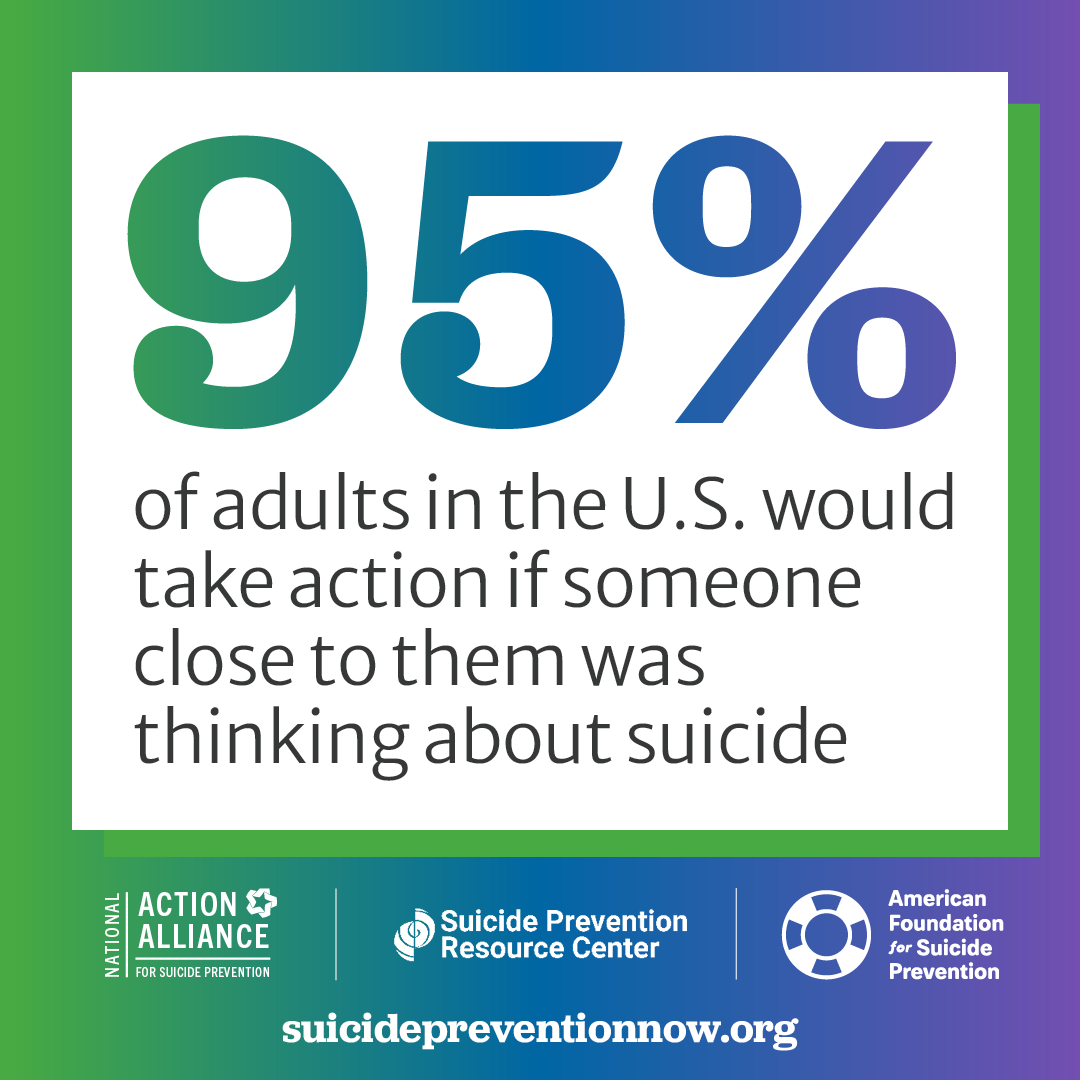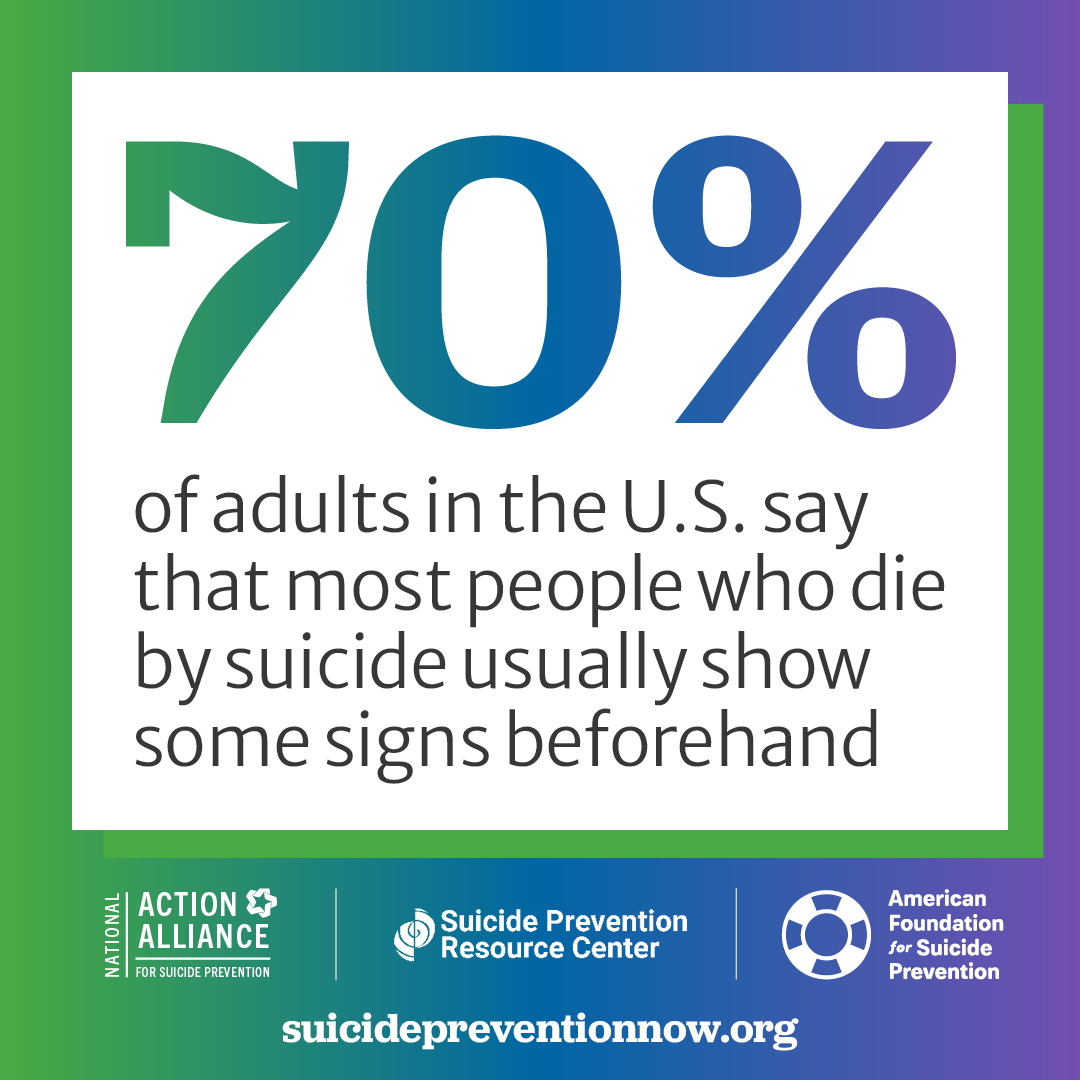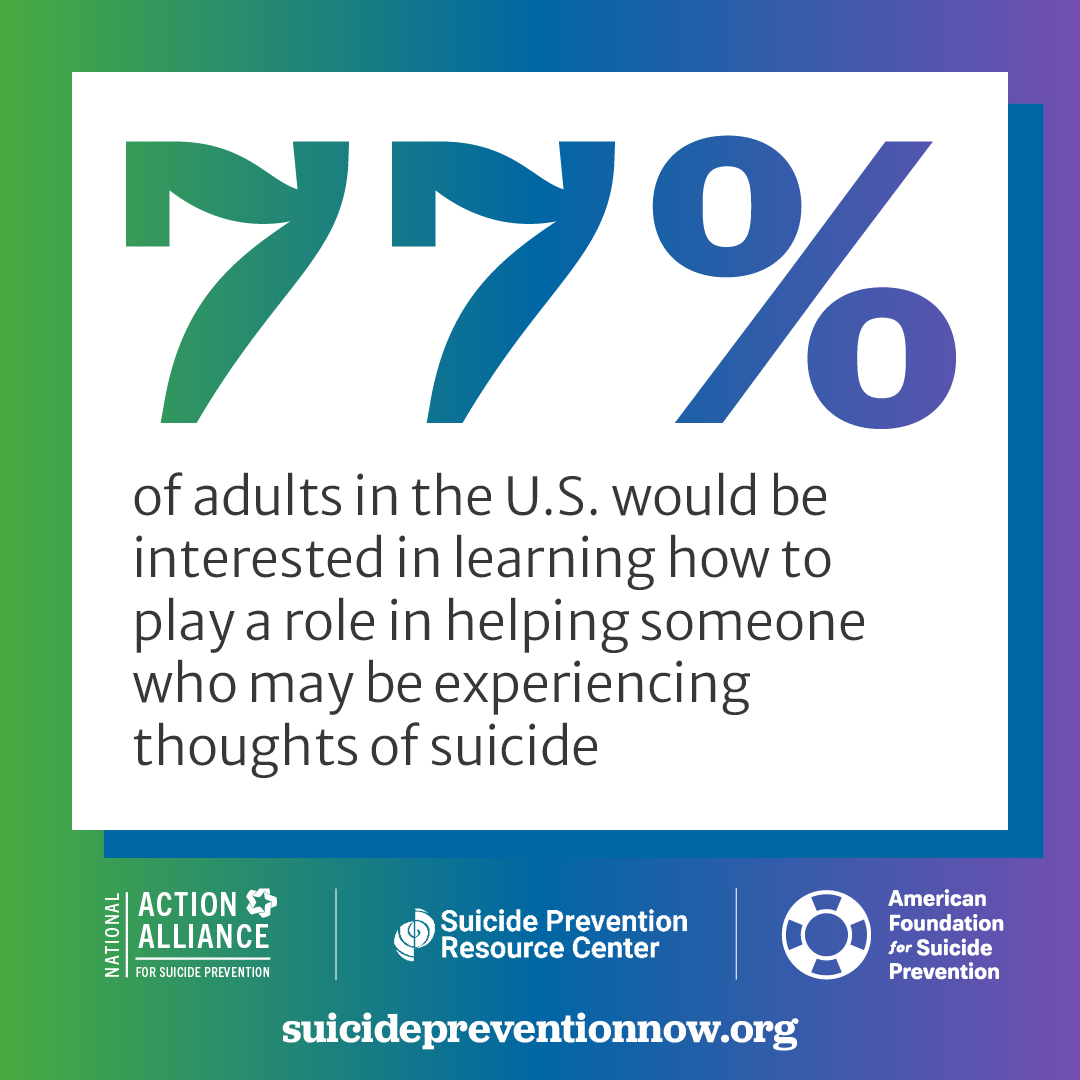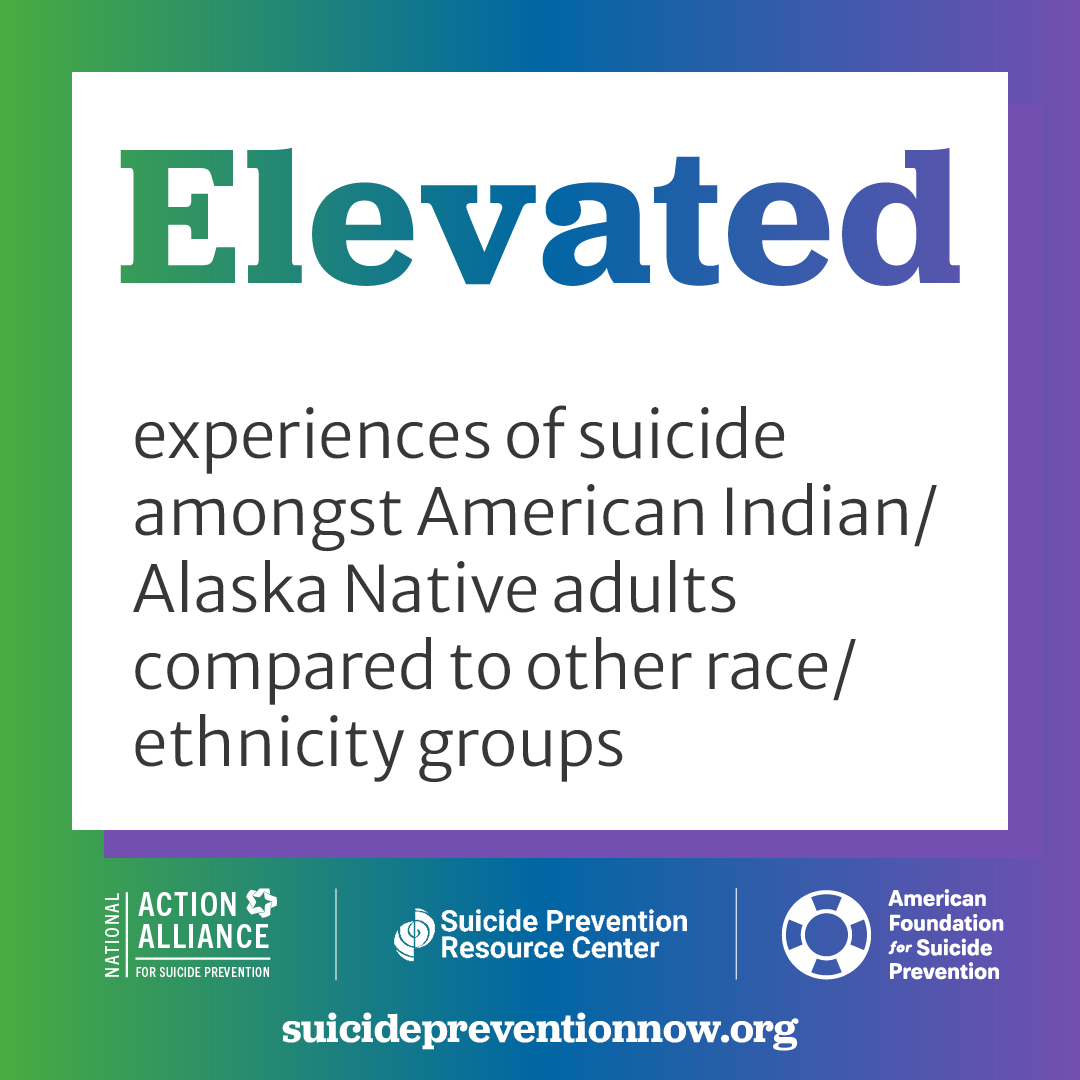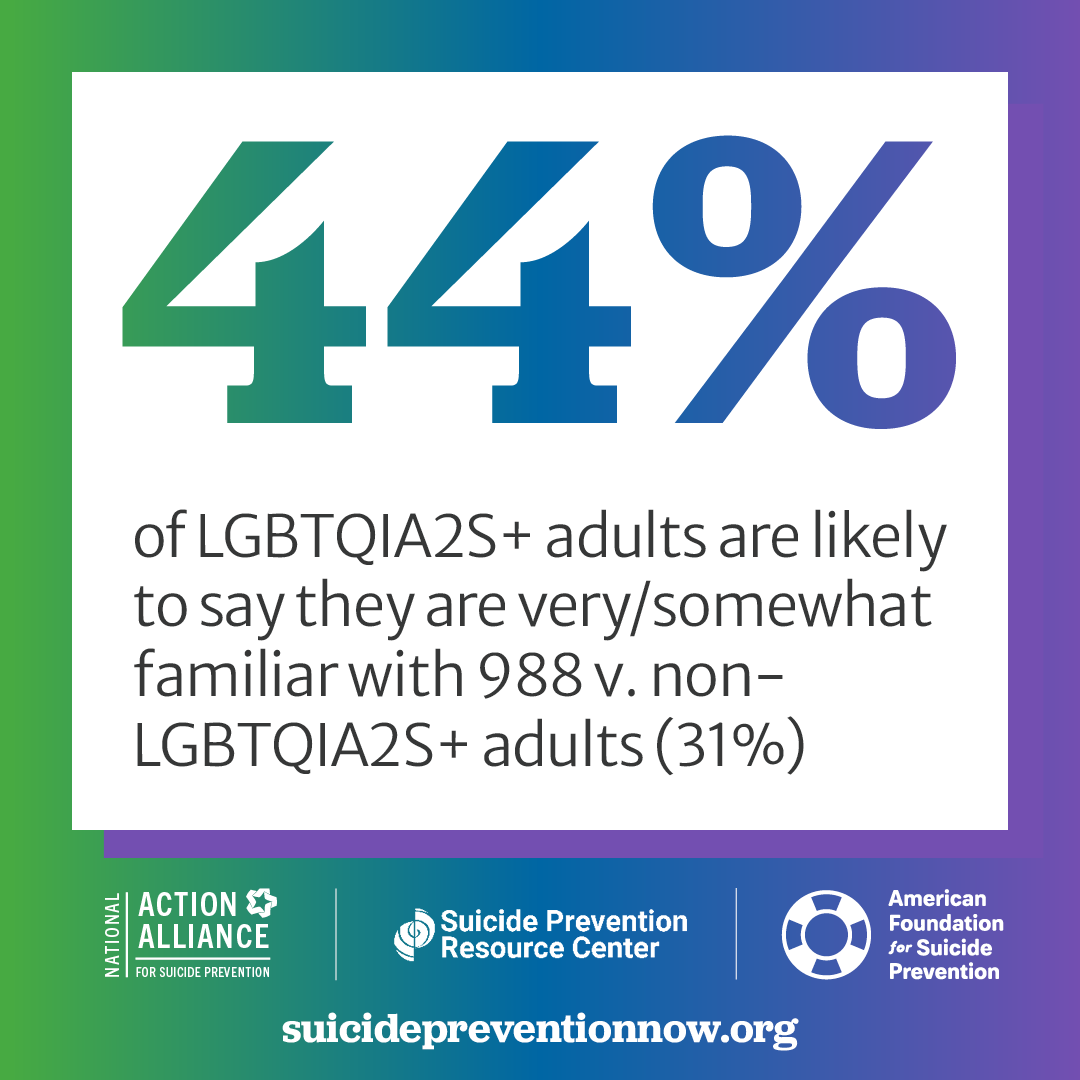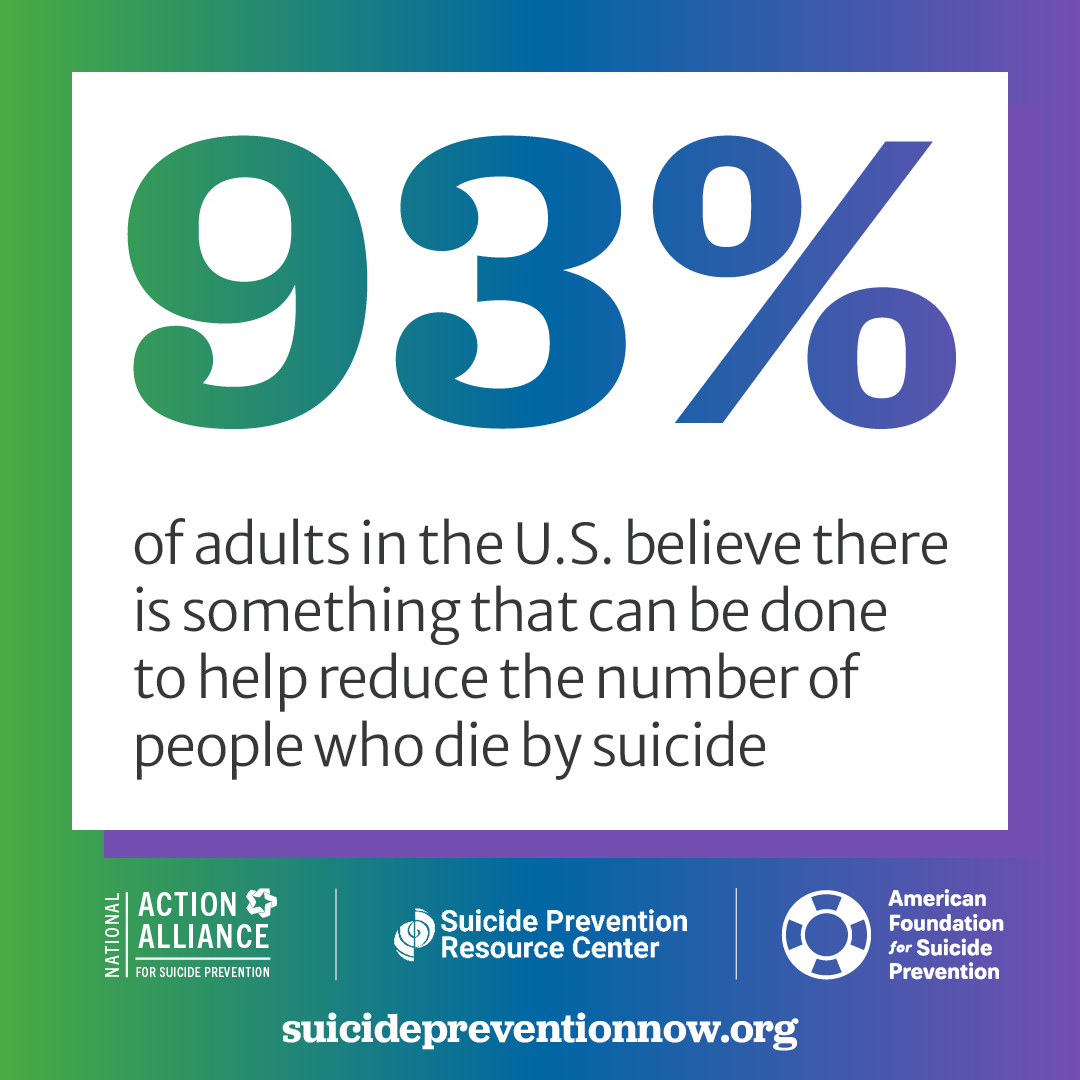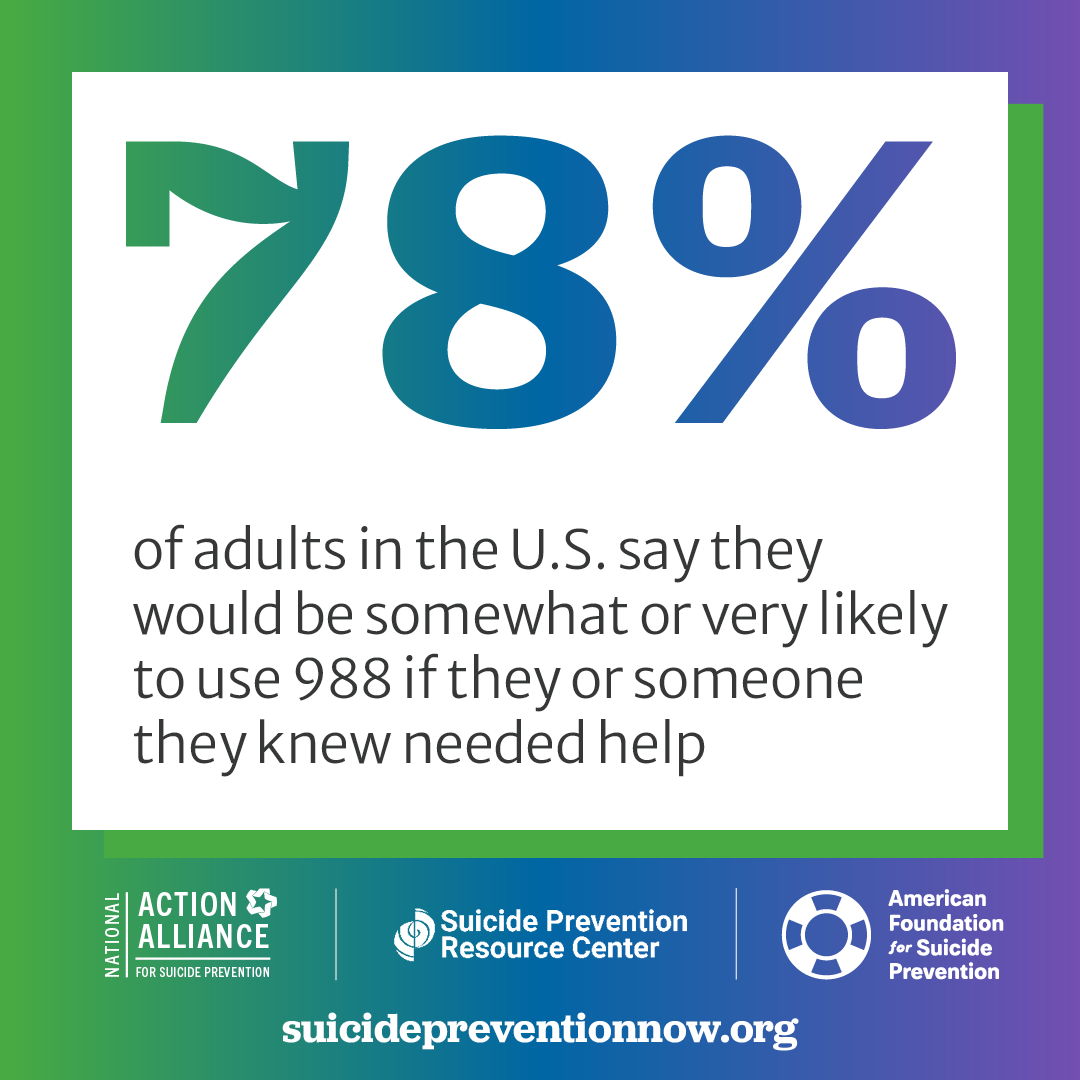Introduction & Executive Summary
Since 2015, the American Foundation for Suicide Prevention (AFSP), the National Action Alliance for Suicide Prevention (Action Alliance) at EDC, and the Suicide Prevention Resource Center (SPRC) have commissioned The Harris Poll to conduct a bi-annual, nationally representative online survey of adults age 18+ in the U.S. to understand the public’s beliefs and attitudes about mental health and suicide. The survey measures what the public knows about how to support someone who is struggling and their perceptions of barriers to helping someone at risk for suicide. The poll also helps reveal the public’s usage of, expectations about, and barriers to using crisis services.
In the latest poll (2024) we: assess the impact of unified suicide prevention messaging efforts over time, gauge public awareness of 988, ask about those trusted individuals to turn to for support, understand lethal means and suicide, identify the role of the workplace and news and entertainment media in suicide prevention, and more. We find that most people believe suicide prevention needs to be a priority and want to help their loved ones who are struggling, but many are not sure how. While progress has been made when it comes to helpful perceptions, attitudes, and beliefs around these issues, more work is essential.
Overall, the poll indicates that we are continuing to make strides, but there is more to do. We must learn more about suicide and mental health particularly through enhanced research efforts, increased public education around suicide prevention, and by advocating for improved access to care and robust crisis services.
This collaborative, multi-year project is conducted by the American Foundation for Suicide Prevention (AFSP), the National Action Alliance for Suicide Prevention (Action Alliance) at EDC, and the Suicide Prevention Resource Center (SPRC). AFSP provided support to fund the website.
Understand the perceptions, beliefs, and attitudes of the U.S. public about suicide and mental health
Based on public perception polling of attitudes about mental health and suicide, mental and physical health are seen as equally important, but most adults do not feel they are treated equally by the overall health care system.

Most People Believe in the Importance of Mental Health
Over time, the public continues to value mental health more than they perceive the health care system does.
Most people perceive mental health as equal to or more important than physical health
However, less than half of U.S. adults now feel physical health is treated as more important
Nearly All Respondents Believe that Suicide Can be Prevented and Want to Take Action to Help
Most people report that suicide can be prevented, at least sometimes, and a vast majority believe that there are warning signs ahead of time and actions that can be taken to help
91%
believe that suicide can be prevented at least sometimes
70%
say that most people who die by suicide usually show some signs beforehand
95%
would take action if someone close to them was thinking about suicide
77%
would be interested in learning how they might be able to play a role in helping someone who may be experiencing thoughts of suicide
Familiarity with 988 Continues to Increase
Two years into 988, there is a growing familiarity with the three-digit number for calling, texting, and chatting. 63% of adults have at least heard of 988 with 33% saying they are familiar with the Lifeline, and 78% say they would be somewhat or very likely to use 988 if they or someone they knew needed help. This is an increase over previous polling in 2022 when 57% had heard of 988 and 28% were familiar.
Most Adults Feel Comfortable Contacting a Mental Health Hotline
71% of U.S. adults would feel comfortable reaching out to a mental health hotline, while just 15% said they have used one in the past. 38% said they would turn to a mental health hotline as a resource for helpful tips about coping with thoughts of suicide or helping a loved one struggling with thoughts of suicide.
Reasons to Reach Out to 988
There were a variety of reasons to reach out to 988
including if they or someone they knew were experiencing thoughts of suicide, a mental health crisis, or substance use issues
Barriers to Overcome in Contacting Crisis Services
There are still barriers to individuals
reaching out to crisis services, such as 988, some of which can be addressed with further education around services.
32% of U.S. adults say nothing would prevent them to reaching out to crisis services if they were struggling with thoughts of suicide or experiencing mental health distress.
Most Adults Have Had Some Personal Experience with Suicide
Since 2018, those who say they know someone who has thought about, attempted, or died by suicide has risen.
Know someone who has thought about, attempted, or died by suicide, or have worried that someone might be thinking about suicide — 61% in 2024, up from 59% in 2022, 55% in 2020, and 53% in 2018
In 2024 the percentage of people who have personally thought about or have made a suicide attempt has remained relatively the same since 2018
Learn About the Data
The change in the public’s perception of and knowledge about suicide and mental health is encouraging. More people have an understanding of the importance of mental health and believe that suicide can be prevented.
U.S. adults recognize that there are warning signs for suicide and want to take action to help prevent suicide.
Let Your Network Know
Over time, U.S. adults continue to recognize that they have the power to seek mental health support, be there for friends and loved ones, practice self-care techniques and routines, and impact the conversation so that mental health is seen as equally important to physical health. Download and share.
Be there for yourself and reach out to someone who might be struggling.
People in the U.S. have a desire to help and are becoming more comfortable talking about mental health and suicide. But many adults are not sure how to help.
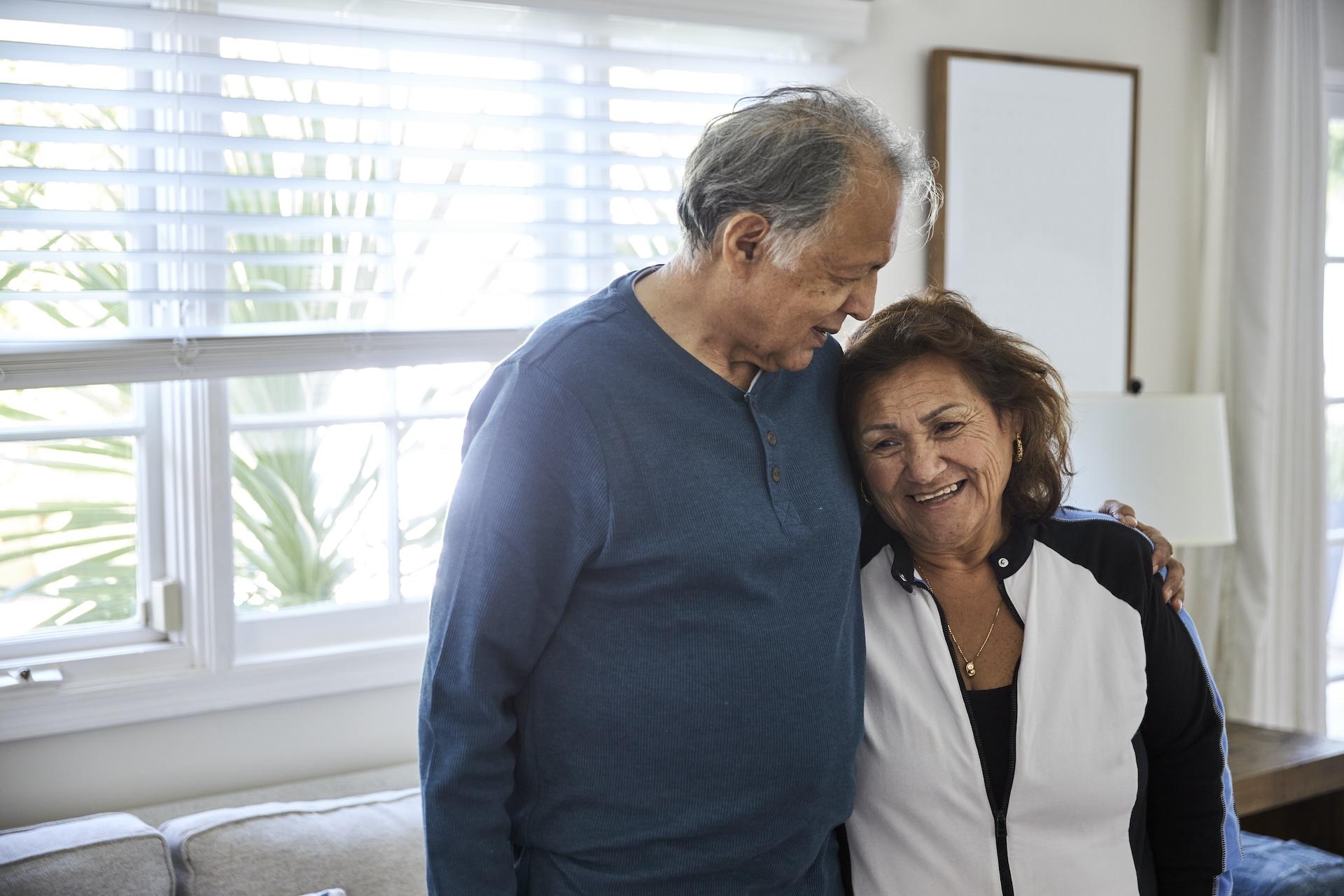
People Are Eager to Help, and Believe That Trusted People Can Make a Difference

More than 9 in 10
93% of adults would do something if they were worried about someone’s mental health; 95% if someone they knew was thinking about suicide

7 in 10
72% of U.S. adults cited barriers to helping someone close to them who was having thoughts of suicide, including concern the person might not accept help (28%) or they would be afraid to make the person feel worse (24%)

Less than 3 in 10
28% say nothing would stop them from trying to help someone who was having thoughts of suicide

Nearly 9 in 10
89% of adults believe that a trusted person can play a role in suicide prevention
People Are Comfortable Talking about Mental Health and Suicide
More than half of adults feel comfortable talking to others about mental health and suicide. 62% would speak openly with others in public about mental health, and 51% would speak openly with others in public about suicide.
82% would tell at least one person if they were having thoughts of suicide, and this is who they would tell
Spouse/significant other
Mental health provider
Another family member
A friend
More People Believe We Can Do More to Reduce Suicide Risk
53%
When people talk openly about their mental health, most adults (53%) feel they are being brave.
Most People Are Unaware About Lethal Means and Suicide
Only 49% of U.S. adults know that limiting access to lethal means (like firearms, medications, household or agricultural chemicals, bridges, or any other object used to carry out a self-destructive act) can prevent suicide.
The Role of Firearms
Just 47% of U.S. adults know that firearms are used in more than half of the cases of suicide in the U.S. Safe storage can help.
Employers and the Media and Entertainment Industry Should Have a Role in Mental Health and Suicide Prevention
92% believe there is at least one role for employers in
supporting mental health and suicide prevention.
90% believe that the media and entertainment industry should
have a role in supporting mental health and suicide prevention.
In terms of specific actions, respondents believe that employers should
Offer mental health benefits
Provide information on resources for mental health and suicide prevention
Educate employees about when to potentially seek mental health treatment/services
Educate employees about mental health and suicide prevention
Encourage employees to utilize time off when needed, including mental health days
Stress the importance of seeking help for mental health and suicide challenges
Help to reduce negative attitudes (stigma) often associated with mental health and suicide
Know How to Help
Year-over-year, people are becoming more comfortable talking about mental health and suicide publicly, and appear to want to be there for others who are struggling. This progress is encouraging and together, we’re reducing barriers to talking about mental health and suicide.
If you are struggling with your mental health or suicidal thoughts or know someone who is, you are not alone. Empowering people to have conversations about mental health and suicide prevention can save lives.
Learn more about how you can be there for yourself and others.
Open Conversations Can Save Lives
If you're struggling with your mental health or suicidal thoughts or know someone who is, you are not alone. Resources, such as 988, are available. There are education programs to encourage people to talk about mental health and suicide prevention and understand ways to help. We must continue to develop opportunities to increase confidence around talking about our mental health and help seeking for suicide risk. Download and share.
Understanding Cultural Nuances: Perceptions by Disproportionately Impacted and Cultural Groups
In 2024, this bi-annual public perception poll surveyed more than twice as many U.S. adults 18+ in 2024 (over 4,000) as previous waves to be able to analyze the total sample in greater detail, particularly by key racial subgroups.
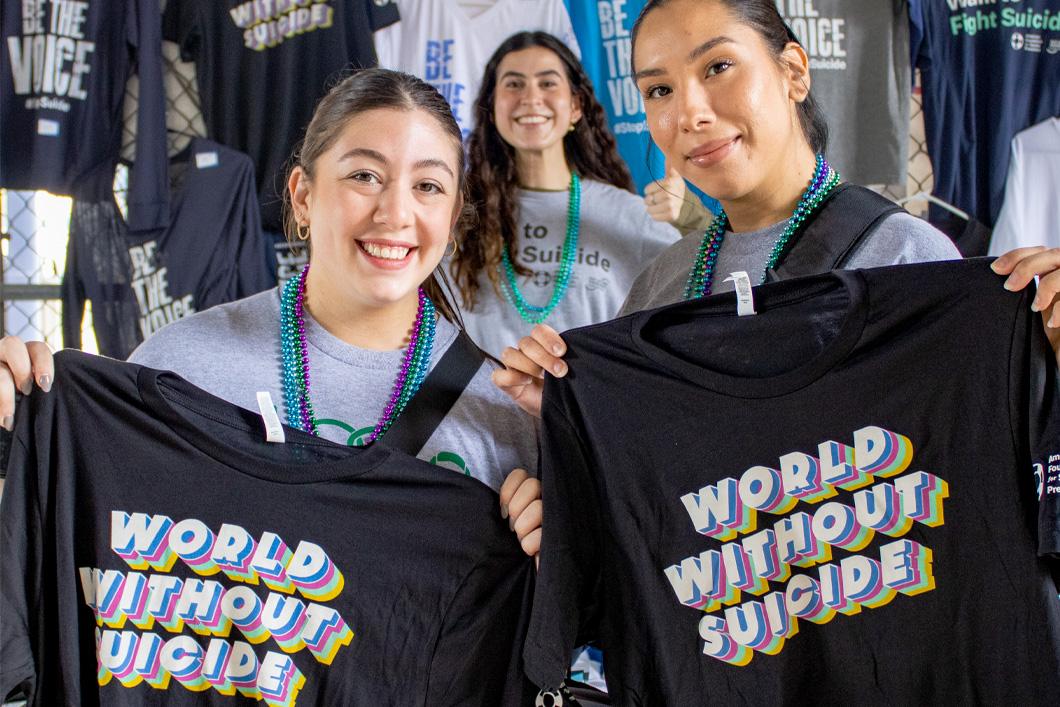
Familiarity with 988 and Likelihood to Call in Demographic Communities
Many demographic communities show similarities
in their familiarity with 988 and their likelihood to reach out to 988.
LGBTQIA2S+ adults are more likely to say they are very/somewhat familiar with 988 vs. non-LGBTQIA2S+ adults (44% vs. 31%), but also less likely to say they would reach out to 988 if they or someone they knew needed help (72% vs. 79%).
* Native American/Pacific Islander community includes a small base of respondents (n<100) and should be interpreted with caution as directional in nature.
American Indian/Alaska Native Personal Experiences with Suicide
American Indian/Alaska Native adults are significantly more likely (77%) to know someone who they have worried might be thinking about suicide or has thought about, attempted, or died by suicide. They are also significantly more likely (42%) to have personally thought about or attempted suicide.
LGBTQIA2S+ Personal Experiences with Suicide
LGBTQIA2S+ adults are more likely than those who do not identify as LGBTQIA2S+ to report knowing someone who they have worried may be thinking about suicide, or has talked to them about, attempted, or died by suicide (68% vs. 61%). They are also more than twice as likely to have personally thought about or attempted suicide (50% vs. 23%).
When Others Talk Openly About Their Mental Health
Respondents are Relieved They’re Not the Only Ones with These Experiences
American Indian/Alaska Native
Native Hawaiian/Pacific Islander*
Hispanic
White
* Native American/Pacific Islander community includes a small base of respondents (n<100) and should be interpreted with caution as directional in nature.
Barriers to Contacting Crisis Services
The top barrier
for several communities was fear of what friends, family or others would think.
Fear of out-of-pocket costs and lack of insurance to cover costs were also barriers to seeking crisis services.
Know How to Help
This data underscores efforts needed to create culturally relevant strategies to support disproportionately impacted and racial groups who face unique challenges.
Check out the complete Executive Summary for a closer look at trends for gender, age, race/ethnicity, LGBTQIA2S+, region, and urbanicity.
Let Your Network Know
Culturally relevant strategies to support disproportionately impacted and racial groups who face unique challenges are needed in order to have a greater impact in these communities.
Help to improve access and strengthen systems of care
More than ever, people are looking to professionals and others for mental health care. However, lack of access and affordability are creating barriers to care.

Most People Believe Actions Can Be Taken to Reduce Suicide Risk
93%
Nearly all respondents believe there is something that can be done to help reduce the number of people who die by suicide.
U.S. Adults Appear to Demand More for Mental Health
The majority of adults feel that there are actions that can be taken to help reduce the number of people who die by suicide.
Provide greater access to care
Develop more training and education for professionals
Educate the public about suicide prevention
Advocate for Change
More than ever, people are recognizing the importance of and need for taking care of their mental health. However, they’re finding that the support system we have in place is not adequate to fill that need. We must continue to advocate for increasing access to care and improving the training available to all health care professionals so that those who make the brave choice to seek care are able to receive it.
Become an advocate to improve access to mental health and suicide-related treatments and supports.
Let Your Network Know
We need your help. By advocating for more mental health and suicide prevention research, resources and access to care, including increased support for the 988 Suicide & Crisis Lifeline, you can make a difference. Download and share.
Take Action
Now that you know the facts, learn more about the data and take action to strengthen suicide prevention and mental health.
